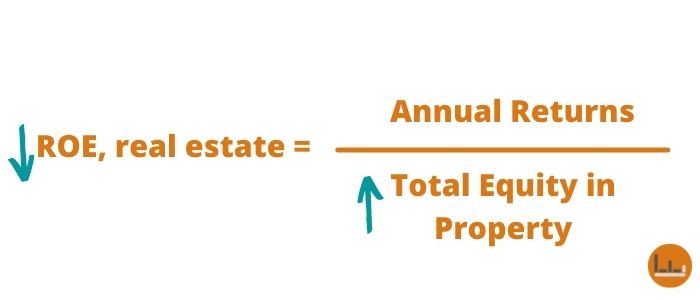How do you choose between two equally good options? Well, one intermediary step is to consider your unique circumstances. Equally good choices are rarely truly equal when you think about it. In the context of real estate and property management, should you manage your properties or outsource the work?
The decision to manage your rental properties or outsource the work will depend on the scale of your portfolio. Although it’s possible to outsource property management work from the start, self-managing builds your experience in determining competent property managers and practices. The education is especially helpful for underserved markets.
I am also assuming you want to build wealth through property accumulation. So while property management may be a necessary evil for beginning real estate investors, it is an area we generally want to pass on to others since your time is best spent acquiring more deals.
What does property management mean anyway? Can anyone do it, or does it take special knowledge? How hard can it be, right? And how do you determine when to self-manage and when to outsource?
Page Contents
What is property management?
Property management is the catchall term for anything related to the supervision of a property. Property manager responsibilities include the screening of tenants, maintenance and repairs, and rent collection. (See Investopedia’s definition of property management.)
Why should a property be managed?
When it comes down to nightmare stories against owning real estate, the predominant cause is some sort of property management failure.
A few of the more popular examples include fixing toilets in the middle of the night; tenants not paying rent; theft; long vacancies. All these drawbacks are addressed by competent property managers and property management systems.
Should you manage your property?

While property management isn’t complicated, there are a few points to consider: Budget, experience, time, and available property managers.
Budget
Can you afford a property manager in the first place? You should because, in fact, the wise investor would’ve included the property management costs even before buying the property.
In her analysis, a property that cash flows well despite the 5% to 10% in fees paid to a 3rd party property manager passes the test.
Experience
But even with the budget in place, there is a convincing reason to self-manage anyway. And that reason is to gain experience. This is particularly true for underserved markets like the Philippines (see point below) where there aren’t too many legit property managers serving small-to-midsize investors.
Experience will point out loopholes in your controls. And trust me, there will be loopholes. This is coming from a guy who’s been robbed by his own security guard. These gaps only become clear when you actually self-manage first.
And although there is no shortcut to actually learning the ins-and-outs or property management, one way to expedite the process is through books or mentors. Consider reading a book on property management and/or seeking out a mentor who’s been there, done that.
Protect your time
Is managing your property the best use of your time, or can you pass it on to someone else?
In the grand scheme of things, particularly of financial freedom through real estate, your time is best spent looking for, analyzing, and closing deals. This may mean networking activities, underwriting prospects, conducting site visits, and many more.
This is especially true when you’re at the accumulation phase. (See Step 8 of the Steps to Financial Freedom, Accumulate More Properties)
(Related: 9 Big Steps to Achieve True Financial Freedom: A Complete Roadmap)
The market in the Philippines
In underserved locations, you’re likely going to deal with real estate brokers or even neighbors who happen to manage properties on the side. This is noticeably different from developed markets like the US, where well-trained and focused property managers do business.
Unlike in the United States, there aren’t many property management companies in the Philippines that serve a targeted area. The large property managers typically serve related entities (e.g., Ayala Property Management Corporation is a wholly-owned subsidiary of Ayala Land), leaving an untapped market of private investors.
The property management decision
Let’s recap what we’ve talked about so far. We understand how self-managing is useful for new investors. We also know that it’s work we’d like to eventually pass on (so we can focus on deals and property accumulation). And finally, we understand how decent property managers may be in short supply.
Now, what follows is my opinion of how we should go about it. These instructions consider the unavailability of full-time property managers, the objective of accumulating properties, and the inclination to learn and develop your own property management systems.
This isn’t meant to be all-encompassing though. If reputable property managers are available in the areas you invest in, then consider outsourcing the work from the start.
Step 1: Develop your property management systems
Self-manage your properties. Learn the ropes and develop your property management system. Read books and look for mentors. See how loopholes may affect you, and address them with the proper controls.
Step 2: Estimate the fees paid to a 3rd party property manager
Scout for the going rates for “property managers” in the area. Although we’re assuming there aren’t legit property managers in the locations you invest in, let’s take the standard 5% commission rate charged by real estate brokers — since they’re probably your best alternative.
(Related: Finding Real Estate Deals for Investors: Why You Need Real Estate Agents)
Step 3: Estimate the salary of an in-house employee
Calculate the going rate of a full-time employee with your planned property manager duties. (Duties established in Step 1) In our example, we’ll assume a salary of Php15,000.00 per month.
Step 4: Point of indifference
The point of indifference is the rental income where either option costs the same — where contracting a 3rd party property manager versus hiring a full-time employee costs the same.
In our example, this point is where rental income equals Php15,000.00 divided by 5% or Php300,000.00 in monthly rent. At this point, a full-time employee might be justified.
Granted, this is a simplified example that doesn’t consider the intangible pros and cons of having your own employee. Whether or not the option is right for you is another matter.
Conclusion
When I say master property management, what I’m really saying is to understand the process before buying more properties. The biggest advantage to self-managing is experience. This is knowledge you can use to filter 3rd party property managers or to develop your own systems.
But as a real estate investor who aims to accumulate properties, property management is a task that you should work on delegating to others. In other words, self-manage with the end goal of passing the system on. Because having a dedicated person for the task means you’re free to do activities of greater value.








